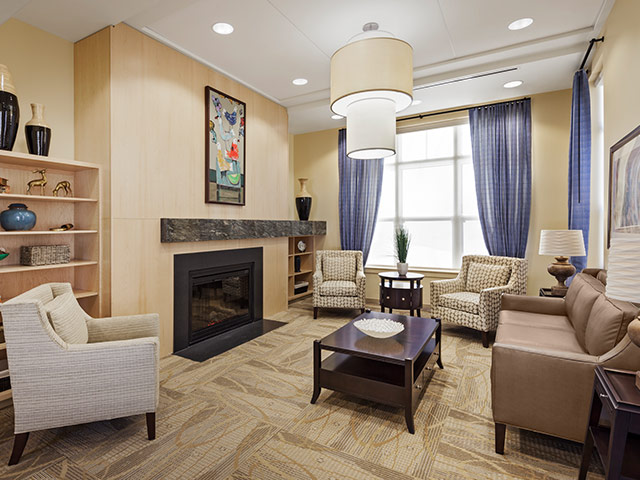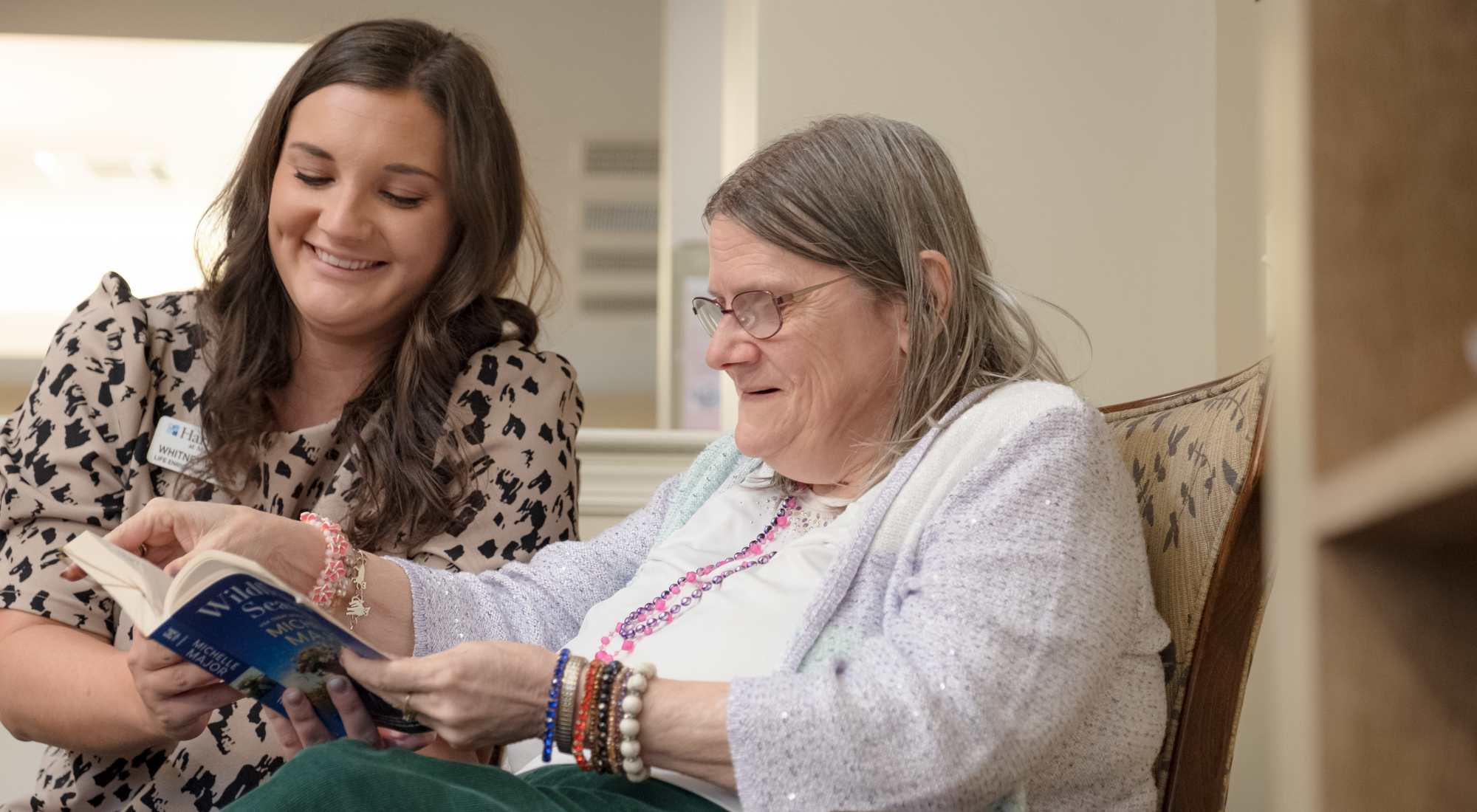Personalized Memory Care Options Focused on Individual Needs
Everything About Memory Care Providers: Why Little Memory Treatment Residences Are an Excellent Selection
Memory treatment services play a vital role in supporting people with Alzheimer's and mental deterioration. Tiny memory care homes stand out for their personalized strategy and intimate setup. With reduced staff-to-resident ratios, these homes promote more powerful connections and customized treatment. Locals gain from boosted social communications and a safe environment. As family members discover alternatives, understanding the unique benefits of tiny memory care homes becomes essential. What elements should be considered when picking the ideal home?
Understanding Memory Treatment Provider
While several may be familiar with basic senior treatment options, recognizing memory treatment services is essential for family members dealing with the obstacles of cognitive decline. Memory care especially accommodates individuals with conditions such as Alzheimer's condition and other types of dementia. These services supply a structured environment that concentrates on boosting the quality of life for residents via specialized care and support.Memory treatment centers are made to ensure safety and security and safety, often featuring safeguarded atmospheres to stop straying. Educated personnel members are available around the clock to help with day-to-day activities, medicine administration, and individual treatment. In addition, memory treatment programs often include cognitive stimulation activities, tailored to engage citizens and advertise psychological well-being. Households can profit from comprehending these services, as they make it possible for informed decisions concerning their loved ones' care, making sure that their details requirements and choices are dealt with in a thoughtful and helpful fashion.
The Benefits of Tiny Memory Treatment Homes
Tiny memory treatment homes supply distinctive benefits that can substantially enhance the lifestyle for locals with cognitive disabilities. One significant benefit is the intimate atmosphere, which permits tailored communications among personnel and locals. This smaller setting fosters purposeful partnerships, lowering sensations of isolation and anxiety usually experienced by people with memory issues.Additionally, the lower staff-to-resident ratio in little memory care homes allows caretakers to offer more attentive supervision and assistance. This method not only boosts safety and security yet additionally promotes a complacency for the residents.Moreover, small memory treatment homes can adapt promptly to the special needs and choices of each citizen, allowing for an extra homelike atmosphere. Such a setting can urge social engagement and engagement in tasks, ultimately improving the daily experiences of those coping with cognitive disabilities.
Personalized Care Plans for Homeowners
Personalized treatment strategies are vital in memory treatment homes, as they satisfy the one-of-a-kind requirements and preferences of each citizen. These strategies begin with comprehensive assessments performed by knowledgeable experts, that examine cognitive abilities, case history, and personal rate of interests. This tailored strategy guarantees that care is not only reliable yet also considerate of each individual's dignity and autonomy.Moreover, customized treatment plans are flexible, enabling modifications as homeowners' needs develop over time. This versatility cultivates a complacency and experience, which is important for people dealing with memory obstacles. Caregivers are educated to carry out these strategies continually, providing assistance that lines up with the homeowners' regimens and preferences.Ultimately, personalized treatment plans improve the high quality of life for homeowners by advertising interaction, freedom, and well-being, making them a basic element of memory treatment services in tiny memory care homes.
Producing a Home-Like Atmosphere
Creating a home-like environment is crucial for cultivating comfort and knowledge in memory care setups, as it greatly influences locals' psychological wellness. Small memory treatment homes typically focus on individualized touches, such as warm shade combinations, family members pictures, and familiar furniture setups, which assist citizens really feel extra secure. Incorporating aspects evocative a conventional home, like relaxing home and common locations, motivates a feeling of belonging.Moreover, utilizing all-natural light and outdoor rooms can boost the environment, promoting relaxation and peace. Employee play a substantial role in preserving this setting by involving with locals in a thoughtful way, treating them like family. Regular tasks, such as food preparation or gardening, can additionally contribute to a home-like feel, using possibilities for locals to join significant experiences. On the whole, creating a nurturing setting sustains cognitive function and emotional security, making it a vital element of memory care solutions.
Boosted Social Interaction and Area
Enhanced social communication and neighborhood are vital components of memory care services. By fostering personalized social interaction and creating a family-like ambience, these solutions advertise purposeful connections among locals. Group activities and occasions even more motivate involvement, aiding individuals feel more consisted of and sustained.
Individualized Social Engagement
While social communication is crucial for overall health, many individuals with memory disabilities typically have a hard time to engage meaningfully with others. Personalized social engagement in memory treatment homes addresses this difficulty by creating customized activities that provide to citizens' unique passions and capabilities. By concentrating on private choices, caretakers can promote links that reverberate deeply with each person. Tasks such as art therapy, music sessions, and assisted conversations promote cognitive excitement and emotional expression. Additionally, small group setups urge friendship and permit more intimate communications, enhancing sensations of belonging. This technique not just deals with feelings of isolation however also empowers citizens to maintain a sense of identification, inevitably adding to improved mental wellness and lifestyle.
Family-like Ambience
In a memory treatment setting, promoting a family-like atmosphere substantially enhances social interaction and builds a sense of area amongst homeowners. Smaller sized memory care homes commonly focus on intimate environments, allowing locals to develop closer links with each other and employee. This nurturing atmosphere promotes count on, which is necessary for individuals with memory disabilities. Citizens are more likely to talk and share experiences, creating a supportive network that alleviates sensations of loneliness. The familiarity of common areas and routines adds to a sense of belonging, better encouraging social communication (personalized memory care). In such setups, psychological bonds flourish, leading to improved general well-being and a higher top quality of life for homeowners as they navigate their day-to-day experiences together
Team Activities and Occasions

Security and Protection Functions in Small Homes
Many tiny homes made for memory treatment integrate crucial security and safety functions to assure the well-being of locals. These homes typically utilize safe entry and departure indicate prevent roaming, a typical issue amongst individuals with memory problems. Furthermore, monitoring systems and alarm system devices check here enhance tracking, ensuring that staff can quickly reply to any uncommon activities.Interior formats are tailored for safety, with reduced dangers such as clutter-free paths and sharp corners. Handrails and non-slip flooring are typically set up to decrease the risk of falls. Team members are trained in emergency procedures, guaranteeing they are gotten ready for numerous situations.Moreover, individualized care strategies may include evaluation of specific safety and security requirements, offering customized options for each resident. Generally, these security and safety attributes develop a nurturing setting where residents can grow while preserving their dignity and self-reliance.
Exactly how to Pick the Right Memory Treatment Home
Exactly how can families ensure they select the most ideal memory care home for their enjoyed ones? The choice calls for cautious consideration of a number of aspects. First, households need to assess the facility's personnel qualifications and training, guaranteeing that caregivers are experienced in taking care of memory-related conditions. Next off, it's important to examine the home's environment, concentrating on safety and security features and whether it promotes a sense of neighborhood and belonging. Seeing the center can offer understanding right into everyday activities and the social ambience, which are necessary for psychological excitement and emotional health. Furthermore, families ought to inquire concerning the treatment strategies provided, guaranteeing they are customized to individual see post needs. Considering the home's location and ease of access for family members sees can add to a smoother shift. By attending to these aspects, families can make an educated decision that prioritizes their enjoyed one's comfort and high quality of life in a memory treatment setup.
Often Asked Questions
What Qualifications Should Team Members in Memory Treatment Homes Have?
Team participants in memory care homes should possess relevant certifications, experience in dementia treatment, strong communication abilities, and empathy. Ongoing training in behavior monitoring and restorative interventions boosts their capability to support citizens successfully.
How Do Memory Treatment Solutions Differ From Conventional Assisted Living?
Memory treatment solutions focus especially on individuals with memory impairments, supplying specialized support and organized environments. In comparison, conventional assisted living offers basic assistance with everyday tasks, doing not have the customized method needed for those with cognitive obstacles.
What Sorts of Activities Are Supplied in Memory Treatment Homes?
Memory care homes typically offer a range of tasks made to involve homeowners. Typical options include art therapy, music sessions, cognitive games, workouts, gardening, and gatherings, all aimed at enhancing well-being and cognitive function.
Can Locals Bring Their Own Belongings to Memory Care Homes?
Residents can generally bring their own valuables to memory treatment homes, allowing them to customize their living room - personalized memory care. This technique aids develop an acquainted setting, promoting comfort and a feeling of identification for the people

Just How Are Relative Involved in the Treatment Process?
Relative play a crucial role in the treatment procedure, frequently taking part in decision-making, going to treatment conferences, and giving psychological assistance. Their participation promotes a collaborative atmosphere, boosting the citizen's general wellness and lifestyle. While numerous might be acquainted with basic elderly treatment choices, understanding memory care services is crucial for families facing the challenges of cognitive decline. These services supply a structured setting that concentrates on improving the quality of life for residents via specialized treatment and support.Memory care facilities are developed to guarantee safety and security and protection, often featuring secured settings wikipedia reference to stop wandering. Personalized care plans are essential in memory treatment homes, as they provide to the one-of-a-kind demands and choices of each local. Team members in memory treatment homes should have appropriate certifications, experience in mental deterioration care, solid communication abilities, and compassion. Memory treatment services focus specifically on people with memory impairments, supplying specialized assistance and organized environments.